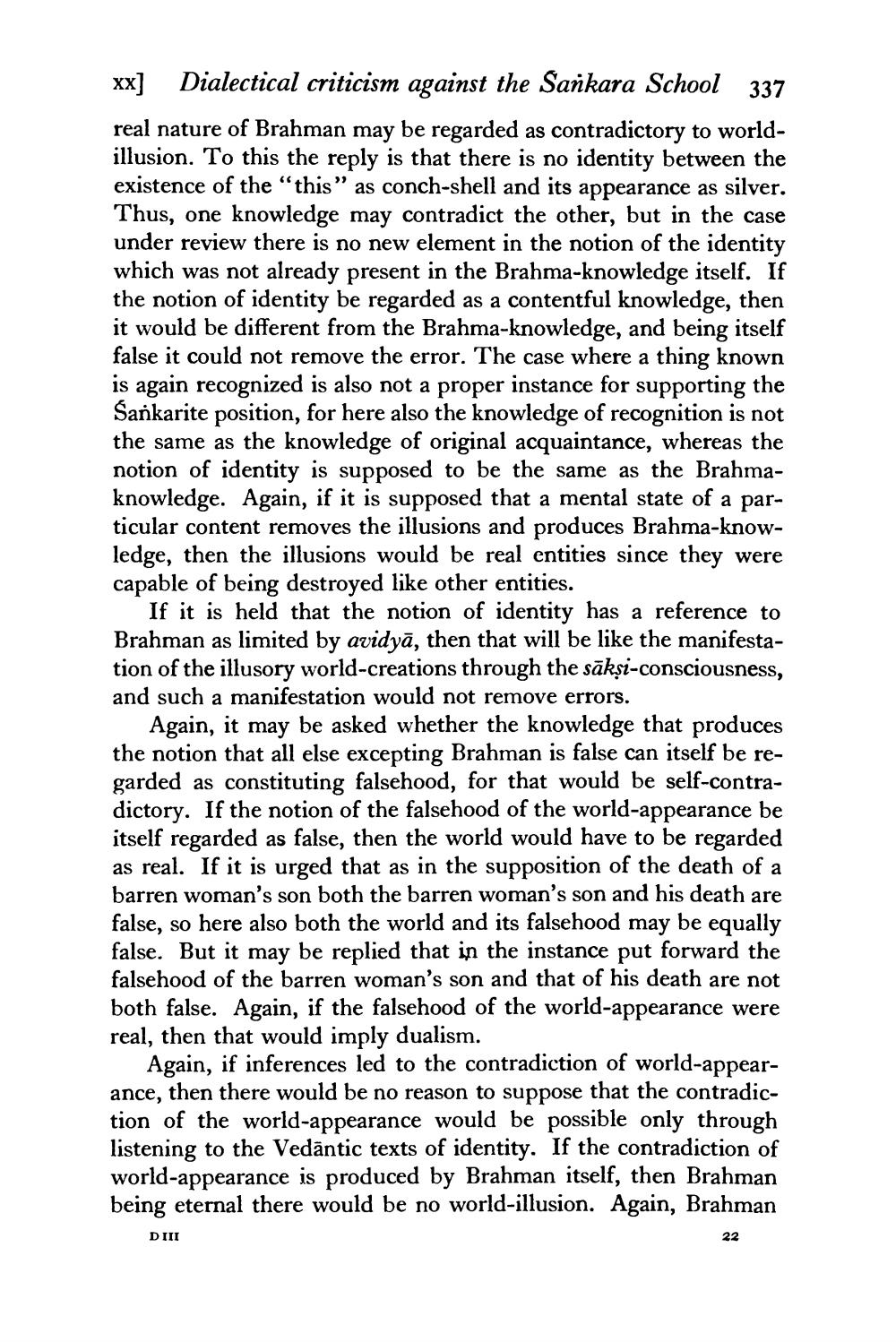________________
xx] Dialectical criticism against the Sankara School 337 real nature of Brahman may be regarded as contradictory to worldillusion. To this the reply is that there is no identity between the existence of the "this” as conch-shell and its appearance as silver. Thus, one knowledge may contradict the other, but in the case under review there is no new element in the notion of the identity which was not already present in the Brahma-knowledge itself. If the notion of identity be regarded as a contentful knowledge, then it would be different from the Brahma-knowledge, and being itself false it could not remove the error. The case where a thing known is again recognized is also not a proper instance for supporting the Sankarite position, for here also the knowledge of recognition is not the same as the knowledge of original acquaintance, whereas the notion of identity is supposed to be the same as the Brahmaknowledge. Again, if it is supposed that a mental state of a particular content removes the illusions and produces Brahma-knowledge, then the illusions would be real entities since they were capable of being destroyed like other entities.
If it is held that the notion of identity has a reference to Brahman as limited by avidyā, then that will be like the manifestation of the illusory world-creations through the sākṣi-consciousness, and such a manifestation would not remove errors.
Again, it may be asked whether the knowledge that produces the notion that all else excepting Brahman is false can itself be regarded as constituting falsehood, for that would be self-contradictory. If the notion of the falsehood of the world-appearance be itself regarded as false, then the world would have to be regarded as real. If it is urged that as in the supposition of the death of a barren woman's son both the barren woman's son and his death are false, so here also both the world and its falsehood may be equally false. But it may be replied that in the instance put forward the falsehood of the barren woman's son and that of his death are not both false. Again, if the falsehood of the world-appearance were real, then that would imply dualism.
Again, if inferences led to the contradiction of world-appearance, then there would be no reason to suppose that the contradiction of the world-appearance would be possible only through listening to the Vedāntic texts of identity. If the contradiction of world-appearance is produced by Brahman itself, then Brahman being eternal there would be no world-illusion. Again, Brahman
DIII
22




